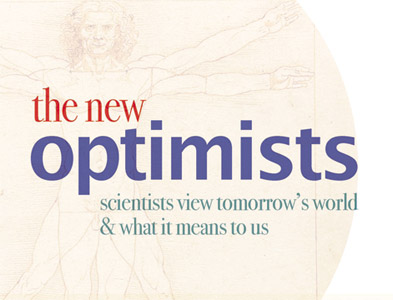Changing behaviour
June 21st, 2010
 One of many intriguing aspects of human language is it varies in predictable ways across social groups. In understanding this variation, argues Dr Tim Grant of Aston’s Centre for Forensic Linguistics, we are sometimes able to locate the social origins of a particular text.
One of many intriguing aspects of human language is it varies in predictable ways across social groups. In understanding this variation, argues Dr Tim Grant of Aston’s Centre for Forensic Linguistics, we are sometimes able to locate the social origins of a particular text.
This expertise is important in a variety of settings. Imagine, for example, that owing to certain pressures, you had falsely confessed to a serious crime, and ‘words have been into your mouth’ by a police officer . . . How might this be uncovered?
In the world of the police and of the courts, linguists such as Dr Grant are joining psychologists in the role of investigative advisor. (For a Crimewatch interview with Dr Grant, please click here.)
Dr Tim Grant is Deputy Director of the Centre for Forensic Linguistics at Aston University. His consultancy primarily involves authorship analysis and he has worked in many different contexts including investigations into sexual assault, murder and terrorist offences. He publishes on forensic linguistics and forensic psychology and his research into text messaging analysis was awarded the 2008 Joseph Lister Prize by the British Science Association. He considers himself a natural optimist.
See also An Introduction to Forensic Linguistics: Language in evidence by the Centre’s Director Malcolm Coulthard and Leeds University’s Alison Johnson.
Tags: Aston University, centre for forensic linguitsics, crimewatch, forensic linguistics, linguistics, tim grant
Posted in Changing behaviour, People, Transformations | No Comments »
June 20th, 2010
 “If history tells us anything, it tells us that our capacity for scientific discovery and invention runs far ahead of our ability to use knowledge and technology wisely,” so says Dr David Chandler, a Senior Research Scientist at the University of Warwick.
“If history tells us anything, it tells us that our capacity for scientific discovery and invention runs far ahead of our ability to use knowledge and technology wisely,” so says Dr David Chandler, a Senior Research Scientist at the University of Warwick.
What we are learning from science, he continues, is just how deeply we are connected to each other and to the natural world. His research in controlling the impact of pests on our crops is complex — and literally vital to feeding the world’s population.
Agricultural production will have to increase significantly in the next decades to meet the demands of an expanding human population. This needs to be done without causing further strain to the environment. Pests reduce the potential global yield of crops by 30 – 40%. Therefore, improving pest control is a highly significant way of increasing access to food. The best way to achieve this is through Integrated Pest Management (IPM). Biological control using entomopathogens can be a valuable component of IPM.
Dr Chandler, with a first degree in biology and a doctorate in mycology, is a microbiologist and entomologist, and conducts research into invertebrate microbial interactions. His main areas of interest are biological pest control, Integrated Pest Management, and bee health.
Tags: agricultural production, bee health, biology, david chandler, integrated pest control, mycology, population, Warwick University
Posted in Changing behaviour, Transformations | No Comments »
June 20th, 2010
The relationship between science and society is of growing importance. The science says, for example, that we must reduce carbon emissions in order to meet the challenge of climate change. But how societies can do this is another matter.
 Richard Green is a social scientist, an economist to be precise, Professor of Energy Economics at the University of Birmingham. He reminds us that, if there is one thing that unites economists, it is that people and organisations respond to incentives. Thus if governments can create the right incentives, people and companies will reduce their carbon emissions.
Richard Green is a social scientist, an economist to be precise, Professor of Energy Economics at the University of Birmingham. He reminds us that, if there is one thing that unites economists, it is that people and organisations respond to incentives. Thus if governments can create the right incentives, people and companies will reduce their carbon emissions.
Professor Green is also the Director of the Institute for Energy, Research and Policy. His main research interests are in the economics and regulation of the electricity industry and energy policy.
Tags: carbon emissions, economics, electricity industry, energy, richard green, University of Birmingham
Posted in Changing behaviour, People, Transformations | No Comments »
June 20th, 2010
Understanding intelligent behaviour (cognition) seems to be an intractable problem. There is also a steady stream of findings showing that some non-human animals have abilities previously thought to be unique to humans. What’s going on?
 Our understanding is increasing, says Dr Jackie Chappell at the Centre for Ornithology at the University of Birmingham, through collaborations between researchers in animal behaviour such as herself, with researchers in robotics and AI (artificial intelligence).
Our understanding is increasing, says Dr Jackie Chappell at the Centre for Ornithology at the University of Birmingham, through collaborations between researchers in animal behaviour such as herself, with researchers in robotics and AI (artificial intelligence).
As a result of these collaborations, models of some of the component systems that appear to generate intelligent behaviour have been built and tested.
 Dr Jackie Chappell is Lecturer in Animal Behaviour at the Centre for Ornithology in the School of Biosciences at the University of Birmingham. She spent several years at the University of Oxford studying various aspects of animal cognition, including tool use in New Caledonian crows. Since moving to the University of Birmingham in 2004, her interests have broadened to the study of cognitive adaptations, in particular how animals use intelligence to adapt to their environment, and why only some species use this strategy.
Dr Jackie Chappell is Lecturer in Animal Behaviour at the Centre for Ornithology in the School of Biosciences at the University of Birmingham. She spent several years at the University of Oxford studying various aspects of animal cognition, including tool use in New Caledonian crows. Since moving to the University of Birmingham in 2004, her interests have broadened to the study of cognitive adaptations, in particular how animals use intelligence to adapt to their environment, and why only some species use this strategy.
She recommends this book for the interested layreader:
Gärdenfors, Peter (2006) How Homo Became Sapiens: On the evolution of thinking. OUP, Oxford. ISBN: 978-0198528517
For those of you who’d appreciate something more technical, this is an interesting paper of hers, co-authored with Aaron Sloman:
J. Chappell and A. Sloman. Natural and artificial meta-configured altricial information-processing systems. International Journal of Unconventional Computing, 3(3):211–239, 2007.
Tags: animal behaviour, artificial intelligence, cognition, cognitive adaptation, intelligent behaviour, jackkie chappell, ornithology, robotics
Posted in Changing behaviour, People, Transformations | No Comments »
June 20th, 2010
 Professor Gemma Calvert in her contribution to The New Optimists raises the somewhat scary prospect of brain prostheses — but sometime ahead in the future.
Professor Gemma Calvert in her contribution to The New Optimists raises the somewhat scary prospect of brain prostheses — but sometime ahead in the future.
Meanwhile recent developments in non-invasive techniques to ‘see’ inside the working brain will lead to many developments. Some hold very real promise of new understanding and therefore better treatment of mental illness. Others may lead to the design of devices that may even help the mute speak, the blind see and the lame work. We’re likely, too, to have better understanding of how to enable desired behaviour change, such as giving up smoking.
 Professor Gemma Calvert is the Chair of Applied Neuroimaging at the Warwick Manufacturing Group. She began her career in the marketing and advertising industry, working for FKB-Carison (1987-1991) before returning to academe. Â She has a Bachelors degree in Psychology from the LSE, and DPhil in Functional Brain Imaging from the University of Oxford where she subsequently established and directed a specialist neuroimaging lab until 2004. Â Her unique career path led her to found the world’s first neuromarketing company, Neurosense Limited, in 1999 and she has over 15 years experience in the commercial application of modern brain imaging methods for marketing and manufacturing.
Professor Gemma Calvert is the Chair of Applied Neuroimaging at the Warwick Manufacturing Group. She began her career in the marketing and advertising industry, working for FKB-Carison (1987-1991) before returning to academe. Â She has a Bachelors degree in Psychology from the LSE, and DPhil in Functional Brain Imaging from the University of Oxford where she subsequently established and directed a specialist neuroimaging lab until 2004. Â Her unique career path led her to found the world’s first neuromarketing company, Neurosense Limited, in 1999 and she has over 15 years experience in the commercial application of modern brain imaging methods for marketing and manufacturing.
Tags: applied neuroimaging, gemma calvert, neuroimaging, neuroscience, Warwick University, wmg
Posted in Changing behaviour, People, Transformations | No Comments »
June 19th, 2010
We will continue the trend of living longer, healthier lives. Unlike earlier generations, the majority of deaths now are brought about by chronic diseases such as cancer and cardiovascular disease.
 The causes of these chronic diseases, says Professor David French, are largely owing to behavioural factors. The major improvements in public health will therefore, he argues, be by changes in lifestyle behaviours.
The causes of these chronic diseases, says Professor David French, are largely owing to behavioural factors. The major improvements in public health will therefore, he argues, be by changes in lifestyle behaviours.
David French is Professor of Health Psychology in the School of Health and Life Sciences at Coventry University. His major research areas are in the development and evaluation of interventions to change health-related behaviours, especially walking. He’s also interested in the communication of risk, especially the cognitive, emotional and behavioural effects of screening programmes.
Tags: coventry university, david frfench, health, psychology, public health, well-being
Posted in Changing behaviour, People, Transformations | No Comments »
June 19th, 2010
 Dr Alex Wood joined the School of Psychological Sciences at the University of Manchester in 2008 after he completed his PhD at Warwick.
Dr Alex Wood joined the School of Psychological Sciences at the University of Manchester in 2008 after he completed his PhD at Warwick.
A major research interest of Dr Wood is in how personality influences well-being (including both psychological and physical health). He’s interested in the entire spectrum of well-being, ranging from extreme dysfunction (such as clinical depression, psychosis, and medical illness) to positive health (such as happiness, positive social relationships, and optimum physical health).
With Professors Gordon Brown and Neil Stewart, he co-authored Cognitive science and behavioural economics — showing us keys to happiness, their contribution to The New Optimists.
Tags: alex wood, personality, psychology, university of manchester, well-being
Posted in Changing behaviour, People, Transformations | No Comments »
June 19th, 2010
 Neil Stewart is a professor in the Psychology Department at Warwick University.
Neil Stewart is a professor in the Psychology Department at Warwick University.
His particular research interests are in perception, mathematical psychology, and judgment and decision making.
He is co-author with Professor Gordon Brown and Alex Wood of Cognitive science and behavioural economics — showing us keys to happiness, their contribution to The New Optimists.
Tags: decision-making, human happiness, neil stewart, psychology, Warwick University
Posted in Changing behaviour, People, Transformations | No Comments »
June 19th, 2010
 The good news is that changing one’s behaviour can have great impact on our sense of well-being and general health, so says Warwick’s Professor Gordon Brown whose work is at the interface of economics and cognitive psychology.
The good news is that changing one’s behaviour can have great impact on our sense of well-being and general health, so says Warwick’s Professor Gordon Brown whose work is at the interface of economics and cognitive psychology.
Professor Brown, along with Neil Stewart and Alex Wood argue in The New Optimists that the focus will shift from mastery of the environment to mastery of our cognition. Money typically explains only 1-2% of individual differences in happiness. Thus improving national happiness may well be better achieved by a greater emphasis on preventing unemployment rather than increasing everyone’s income.
Professor Brown’s research interests in the computational and mathematical modelling of human timing and memory; categorisation, identification, and word recognition; and the interface between economic psychology, cognitive science, and psychophysics
Tags: cognition, cognitive science, economic psychology, economics, Gordon Brown, human happiness, Warwick University
Posted in Changing behaviour, People, Transformations | No Comments »
June 19th, 2010
HIV/AIDS is the most serious pandemic humankind has ever faced. In some communities, particularly in the developing world, its impact has been devastating. The search for a cure or a vaccine has been a twenty-five year roller-coaster of optimism followed by despair.
It’s unlikely, too, that this search will bear fruit for the millions already infected. However, it is in the realm of social scientists that the much hope rests. For in understanding how humans can change behaviour, we have a chance of controlling the spread of this devastating illness — although education and behavioural change are not easy options.
Professor Hazel Barrett is one such social scientist. Head of Department at Coventry University’s Department of Geography, Environment and Disaster Management, her research interests are in health and poverty in the developing world, including HIV/AIDS and children in sub-Saharan Africa.
Tags: coventry university, hazel barrett, HIV/AIDS
Posted in Changing behaviour, People, Transformations | No Comments »
 One of many intriguing aspects of human language is it varies in predictable ways across social groups. In understanding this variation, argues Dr Tim Grant of Aston’s Centre for Forensic Linguistics, we are sometimes able to locate the social origins of a particular text.
One of many intriguing aspects of human language is it varies in predictable ways across social groups. In understanding this variation, argues Dr Tim Grant of Aston’s Centre for Forensic Linguistics, we are sometimes able to locate the social origins of a particular text.













 Professor Gemma Calvert is the Chair of Applied Neuroimaging at the
Professor Gemma Calvert is the Chair of Applied Neuroimaging at the 


